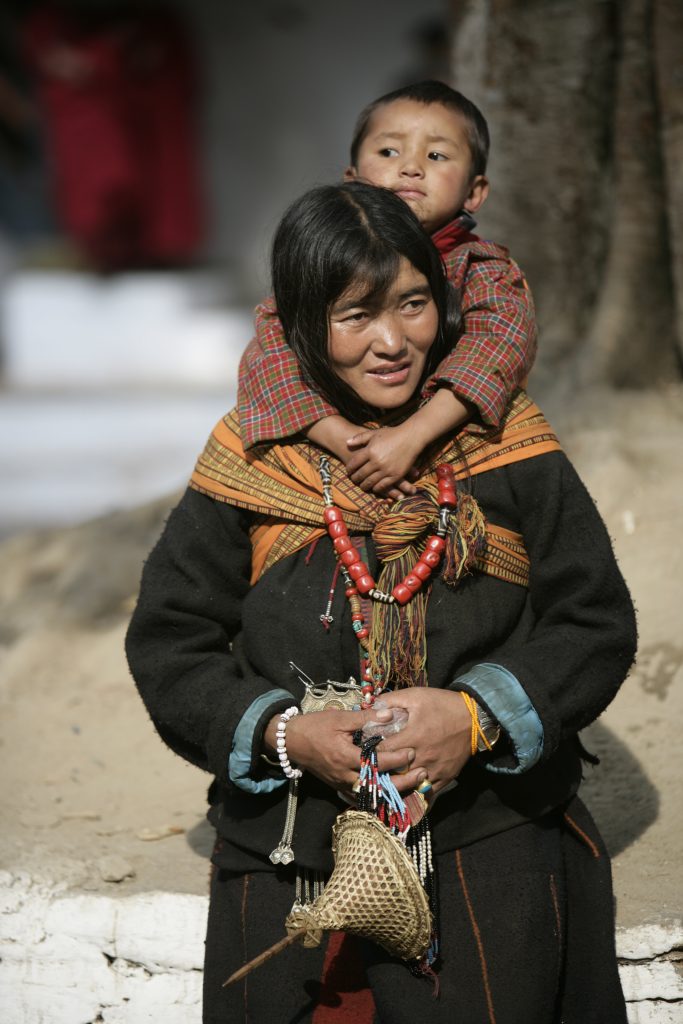Three to Tango
Until some years ago, Polyandry – or the custom of taking two or more husbands by a woman – was a necessity in Laya given the remoteness and inacces-sibility of the place and the manpower required for daily chores in the fields and at home. Today, the practice is dying out. There are only a handful of women with two or more husbands. The younger lot prefers to take a single partner.

The practice of polyandry then was born out of necessity – because the remoteness of the place made it impossible for men to seek women elsewhere. Located up in the highlands, Laya remained largely inaccessible. Even today, it is a gruelling eight hours’ walk from Gasa.
As a small and independent community, trust was important. An inhabitant of the village, Lhakpa Tshering says that, “Laya was remote, detached and remained hidden in the mountains. Marrying an outsider was looked down upon. People preferred to live together as not many could afford to build a house of their own. So the custom of marrying more than one husband was common.”
Located in the highlands, people could not cultivate crops, trading was difficult as travelling from Laya to another town would take days, sometimes even months across the border in the north. So, polyandry was the best solution. When one husband went trading with other communities or to barter goods, which took weeks if not months to and fro, the other took the cattle to greener pastures higher up. That was how things were.
However, the winds of change are sweeping through the remote village of Laya today. A small school and a basic health unit have been established. Cordyceps has been a blessing in disguise for the community there. The residents of the village are by far wealthier today than they were a decade ago. The road for Gasa to Laya has reached Koina, a boggy little stretch in the fog where tourists and government officials heading to Laya stop to catch their breath and to refuel themselves.
Today cultural change is palpable in Laya. The community’s traditional dress is a relic of the past as more youngsters opt for modern attire. Even houses are not built in the traditional style anymore. There is a construction boom of sorts going on in the village and builders are hired from the east.
Dorji, 52, from Neylu says Children today prefer getting married with a single partner. There is no way we can force them to do otherwise. However, there are exceptions still. Tshering, 29, from Lungu has two husbands. They are brothers. She got married to the elder one when she was 16. One is a carpenter, the other looks after horses. “We don’t face any problem as my husbands are brothers,” she says.

